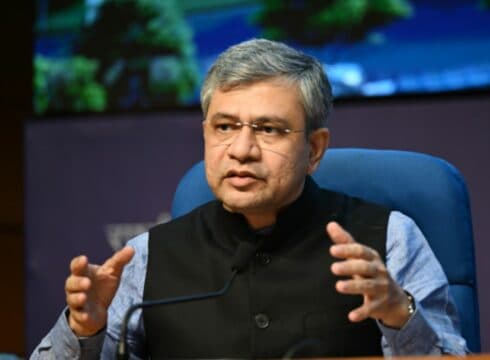Union Minister Ashwini Vaishnaw said the rules will evolve based on the learning from their implementation
The government released the draft DPDP Rules 2025 on January 3, and they are open for public consultation until February 18, 2024
The DPDP Act classifies users under 18 as children and mandates social media or internet intermediaries, known as data fiduciaries, to obtain explicit parental consent before processing any data from children
Inc42 Daily Brief
Stay Ahead With Daily News & Analysis on India’s Tech & Startup Economy
The Centre is reportedly looking to further refine the Digital Personal Data Protection (DPDP) Rules as a part of its effort to save children from harms in the digital space while fostering their engagement with technology.
As per a PTI report, Union Minister Ashwini Vaishnaw said the rules will evolve based on the learning from their implementation.
“We will refine it (DPDP Rules) further to take the power of technology to children while saving them from many harm,” he said.
The government released the draft DPDP Rules 2025 on January 3, and they are open for public consultation until February 18, 2024.
The DPDP Act classifies users under 18 as children and mandates social media or internet intermediaries, known as data fiduciaries, to obtain explicit parental consent before processing any data from children.
The draft rules mandate that digital platforms can process a child’s data only with consent from a verifiable parent or guardian. Verification can be done using voluntarily provided identity and age details or through a virtual token issued by a legally authorised entity.
Vaishnaw mentioned that the token system had been successful in various instances, such as Aadhaar-based transaction verifications. He explained that the tokens would be temporary and valid for a single transaction, after which they would be automatically destroyed. The minister also stated that sector-specific guidelines could be issued if necessary, but only after consulting with relevant sectoral experts and stakeholders.
Vaishnaw said virtual token verification would not risk individual privacy. He confirmed that the DPDP Act would not affect whistleblowers, as they are protected by law. He also mentioned that there is no limit on filing complaints under the DPDP Act.
Last year, it was reported that social media platforms are exploring methods like QR codes, virtual Aadhaar IDs, or age verification at the app store level to comply with the DPDP Act of 2023. However, this provision encountered pushback from industry executives who were concerned about the privacy implications associated with these tools for establishing children’s ages and verifying parental connections.
{{#name}}{{name}}{{/name}}{{^name}}-{{/name}}
{{#description}}{{description}}...{{/description}}{{^description}}-{{/description}}
Note: We at Inc42 take our ethics very seriously. More information about it can be found here.


